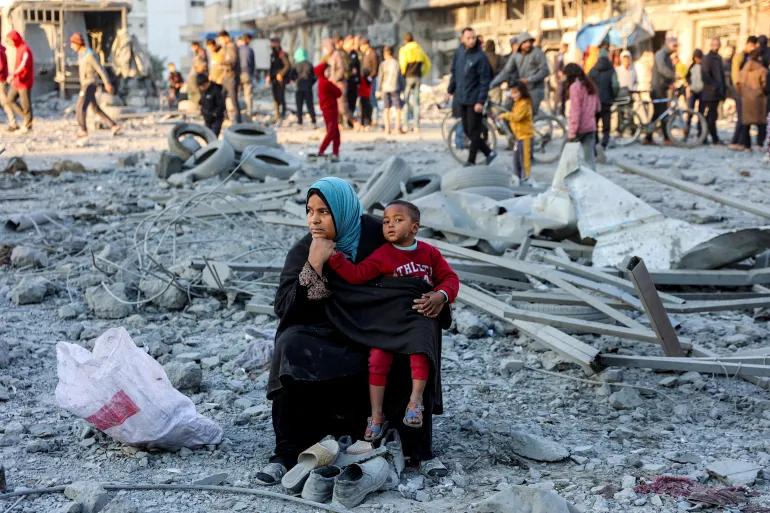Israel and Hamas Agree to Gaza Ceasefire and Hostage Deal
16 January 2025 - 04:41

In a major breakthrough, Israel and Hamas have reached a tentative agreement to implement a ceasefire in Gaza, coupled with the exchange of hostages and detainees. The deal, which has been hailed as a crucial step toward easing tensions, has been met with cautious optimism from the international community.
Key Aspects of the Agreement
The agreement, brokered with significant international mediation, involves the following key components:
- Temporary Ceasefire: The deal includes a pause in hostilities between Israel and Hamas. The ceasefire is set to begin Sunday, though the exact timeline remains subject to final approval by Israel’s cabinet.
- Hostage Exchange: Hamas has agreed to release Israeli hostages held in Gaza, while Israel will free Palestinian detainees from its custody. Details on the number of individuals involved and the conditions for their release are still emerging.
- Humanitarian Aid Access: The agreement calls for unimpeded humanitarian access to Gaza, a region devastated by weeks of intense conflict. The United Nations and other international aid organizations have welcomed the deal, pledging to scale up relief operations. The UN agency for Palestinian refugees has called for “rapid, unhindered and uninterrupted” access to address the dire humanitarian crisis.
Reactions from Key Stakeholders
Israeli Prime Minister Benjamin Netanyahu has refrained from making an official statement, noting that he will comment only after all details are finalized and the cabinet has approved the agreement. Meanwhile, international leaders and organizations have expressed cautious optimism.
U.S. President Joe Biden acknowledged the role of bipartisan cooperation in brokering the deal, which involved both the Biden administration and figures from the Trump camp. Biden emphasized that the agreement could serve as a foundation for broader discussions, hinting at a potential “phase two” to establish a more permanent resolution to the conflict.
“This temporary ceasefire is a step in the right direction, but our ultimate goal must be a permanent end to the war,” Biden said during a press briefing.
Humanitarian Efforts Intensify
International aid agencies have vowed to intensify their efforts in Gaza, where civilians have borne the brunt of the conflict. Food, medical supplies, and shelter remain critically needed, with thousands displaced and infrastructure severely damaged.
Philippe Lazzarini, head of the UN Relief and Works Agency (UNRWA) for Palestinian refugees, welcomed the agreement, stressing the need for immediate and sustained access to the enclave. “We are ready to respond to the urgent needs of the people of Gaza, but this requires unhindered humanitarian corridors,” he said.
Uncertainty and Hurdles Ahead
Despite the promise of the agreement, challenges remain. The specifics of the three-phase plan, including mechanisms for monitoring and enforcing the ceasefire, are yet to be fully disclosed. Additionally, the underlying tensions and unresolved issues between the two sides underscore the fragility of the deal.
Analysts caution that while this agreement marks a significant step forward, it is far from a comprehensive solution. The decades-long conflict between Israel and Hamas involves deep-seated grievances that will require sustained diplomatic efforts to address.
As the world watches, the coming days will reveal whether this agreement can hold and pave the way for lasting peace in one of the world’s most volatile regions.

